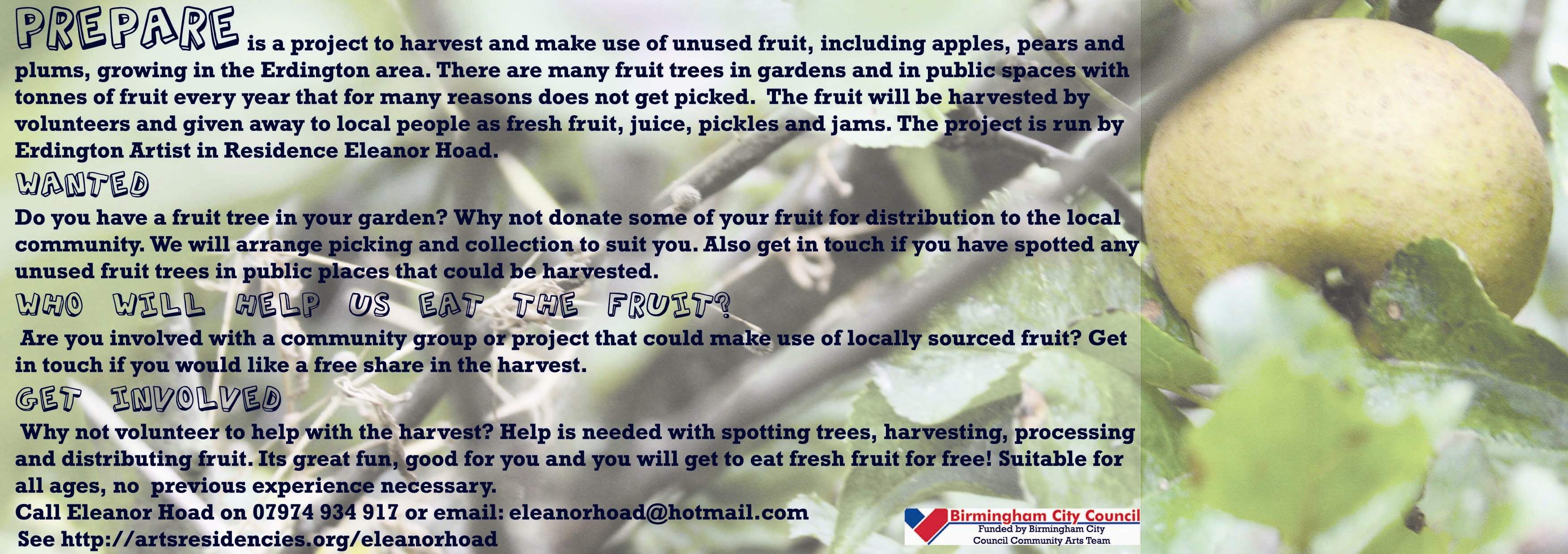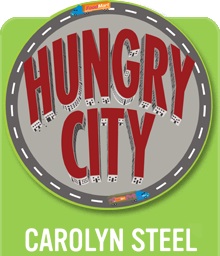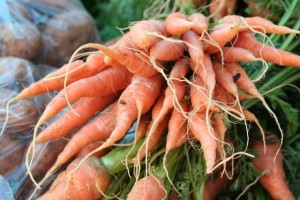It’s the season for orchard fruits; plums, damsons, and sloes seem to have been everywhere in the last two months, and now, apples are abounding, as are the festivals that celebrate them. In this post, guest writers Dacier Outten (of the excellent Tales from under Black Hill blog) and Mary Horesh, describe the Big Apple in Much Marcle, and later I plug the forthcoming Apple Day at Kingstanding Leisure Centre.
The Big Apple is a great little festival in the middle of an important fruit growing area. Every year the seven parishes of the Marcle Ridge country south of Ledbury in Herefordshire celebrate their heritage of apples and cider, and pears and perry.
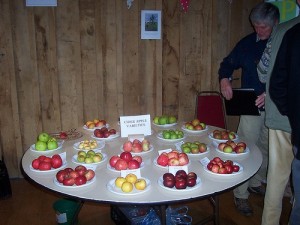 For the avoidance of doubt both cider and perry are made by crushing and then pressing the fruit and the reason that most people don’t really know of perry is because the output of perry pears is usually consumed by the local demand. Perry was big in the fifties in the form of Babycham but real perry, whether still or fizzy, is a fuller bodied drink. Purists like us are annoyed by the appearance of products under the name of Pear Cider which is a contradiction in terms but it is presumably intended to create a new drink for people taken to be incapable of understanding the difference. Drinking either can of course make you incapable of anything especially with some hand crafted farm versions going to 8% ABV or above. If the drink is made from 100% pears then it is perry but if pear juice has been added to cider we would claim is a pear flavoured cider. Many mass produced products will fall back on imported concentrate when supplies are tight but not the genuine products you can find at this event.
For the avoidance of doubt both cider and perry are made by crushing and then pressing the fruit and the reason that most people don’t really know of perry is because the output of perry pears is usually consumed by the local demand. Perry was big in the fifties in the form of Babycham but real perry, whether still or fizzy, is a fuller bodied drink. Purists like us are annoyed by the appearance of products under the name of Pear Cider which is a contradiction in terms but it is presumably intended to create a new drink for people taken to be incapable of understanding the difference. Drinking either can of course make you incapable of anything especially with some hand crafted farm versions going to 8% ABV or above. If the drink is made from 100% pears then it is perry but if pear juice has been added to cider we would claim is a pear flavoured cider. Many mass produced products will fall back on imported concentrate when supplies are tight but not the genuine products you can find at this event.
A few years ago there was a lot of concern with all the orchards being grubbed up around Herefordshire but we can report that the cider business is growing and on the way to Much Marcle the sight of lots of orchards being re-established added to the glorious views of the Malvern Hills, Marcle Ridge itself and beyond to the Black Mountains. Such is the growth of cider that despite a hugely reduced acreage we are drinking record volumes of the stuff. This productivity has been achieved by growing traditional varieties as dwarf trees with high yields easier harvesting.
The big name producer in Much Marcle, the centre of the festival, is the family run firm of Weston’s Cider. Their works are well worth a visit especially if you take the tour of their modern cider mill/factory. We would claim that their Stowford Press Ciders and their traditional perry are right at the top of the mass produced roll of honour. Their traditional fizzy perry makes a sound substitute for many white wines at a fraction of the cost so a trip to their shop is both a bargain and an education all in one.
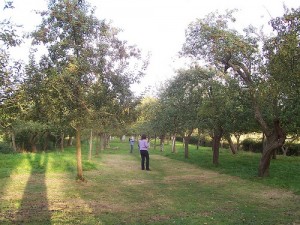 At the other end of the scale is Greggs Pit which is found at the end of a farm track and situated in a cottagers plot with its small orchard of traditional fruit trees. The production process is what we would call ‘artisan’ with the result that award winning perry and cider is produced here. A custom built barn for the vats with an open front for the crusher and apple press never fails to prompt dreams of creating such a unit on our own hillside plot. The old cottage orchard has cider trees as well as cooking apples, damsons and other fruits. Not all is used for cider and perry but we are happy to report that redwings and other birds don’t let anything go to waste. Apples and pears are also bought in from nearby farms so that single variety brews can be created. If you have never tried top quality ‘champagne method’ ciders and perrys this is the sort of place you need to track down. At Lyne Down Cider you can try your palette at more traditional brews as well as fresh apple juice straight from the press.
At the other end of the scale is Greggs Pit which is found at the end of a farm track and situated in a cottagers plot with its small orchard of traditional fruit trees. The production process is what we would call ‘artisan’ with the result that award winning perry and cider is produced here. A custom built barn for the vats with an open front for the crusher and apple press never fails to prompt dreams of creating such a unit on our own hillside plot. The old cottage orchard has cider trees as well as cooking apples, damsons and other fruits. Not all is used for cider and perry but we are happy to report that redwings and other birds don’t let anything go to waste. Apples and pears are also bought in from nearby farms so that single variety brews can be created. If you have never tried top quality ‘champagne method’ ciders and perrys this is the sort of place you need to track down. At Lyne Down Cider you can try your palette at more traditional brews as well as fresh apple juice straight from the press.
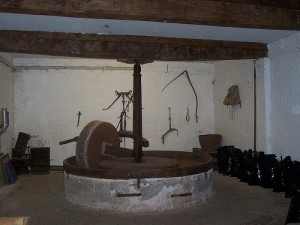 On the Sunday at Hellens, the local ’big house’, they get their old crushing mill going with visitors helping to push the crushing wheel round in its trough; a task usually carried out by a horse! Hellen’s Perry is made from pears collected on the Saturday and as with all of the events you can usually by a bottle or two. The house itself is well worth a visit and is one of those places that always seems to have been connected with many of the great events down the centuries but it, and its residents, seem to have survived by good judgement and luck. A return visit to this house on a quiet summer afternoon makes a great outing. During the festival the adjoining barns are devoted to the sale of fruit (Flight Organics) and the study of apples and pears (Marcher Network) and there are helpful experts who will try and identify the mystery apple tree in your garden. The variety of local food is usually well displayed at this event. Added to all this bustle was the appearance of the Leominster Morris dancers who drew a large crowd.
On the Sunday at Hellens, the local ’big house’, they get their old crushing mill going with visitors helping to push the crushing wheel round in its trough; a task usually carried out by a horse! Hellen’s Perry is made from pears collected on the Saturday and as with all of the events you can usually by a bottle or two. The house itself is well worth a visit and is one of those places that always seems to have been connected with many of the great events down the centuries but it, and its residents, seem to have survived by good judgement and luck. A return visit to this house on a quiet summer afternoon makes a great outing. During the festival the adjoining barns are devoted to the sale of fruit (Flight Organics) and the study of apples and pears (Marcher Network) and there are helpful experts who will try and identify the mystery apple tree in your garden. The variety of local food is usually well displayed at this event. Added to all this bustle was the appearance of the Leominster Morris dancers who drew a large crowd.
An essential visit during the afternoon is to the Memorial Hall where you will usually find an art exhibition as well as ‘a cup of tea and a slice of cake’ as Wurzel Gummage would describe his favourite refreshment. One year we were in front of a novice ‘Big Appler’ who asked whether they had any apple cake? Yes, came the reply, about fifteen different choices! We bought about five different types and sampled pieces from each. We have our own popular recipe which was found in a book on Yorkshire cooking where it is described as ‘Somerset Apple Cake’. Althought not a local recipe, we do not find this hard to live with as we all have a fondness for counties where apples are a specialist crop and so whether it comes from the land of the Wurzels’, Gloucestershire, Devon, Kent or Cornwall, or our own dear Herefordshire, if it’s good, we’ll have it. Especially with cream, in moderation of course, as with cider and perry.
A short distance from the Memorial Hall is St Bartholomew’s Churchwhere local produce and crafts were on sale in aid of church funds. A brief rest beneath the 1,500 year old yew tree might just restore the energies sufficiently for a visit to Awnell’s Farm.
Awnell’s Farm is run by the Countryside Restoration Trust, this conservation charity aims to protect and restore Britain’s countryside with wildlife-friendly and commercially viable agriculture. The trust is committed to promoting the importance of a living and working countryside through education, demonstration and community involvement.
It has another farm just down from us at Turnastone Court where the National Hedge Laying Championships will be held this coming 24th October, hopefully ‘with a caterer in attendance’. This usually means a beer tent at the very least. Taking farming back to sustainable practices by working with nature is a welcome contrast to some of the industrial farming that can be found in Herefordshire such as the ever present expansion of growing fruit under plastic and the efforts the Potato Barons which sometimes results in our precious pink soils being washed away in heavy downpours.
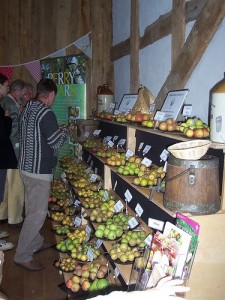 Most years the event has attracted large parties of cyclists. This is an encouraging feature although we sometimes thought that their awareness of pedestrians could have been better. Was it perry they had stowed in their drinking flasks we asked? Now in its twentieth year the number of visitors cars can be a problem but it is not yet on a scale which needs major management, and a parking space is usually available somewhere. Bringing a bike to tour the various events is a good idea and means that the car can be left at some distance. I think we will try it next year, although a good set of panniers will be needed for our liquid purchases.
Most years the event has attracted large parties of cyclists. This is an encouraging feature although we sometimes thought that their awareness of pedestrians could have been better. Was it perry they had stowed in their drinking flasks we asked? Now in its twentieth year the number of visitors cars can be a problem but it is not yet on a scale which needs major management, and a parking space is usually available somewhere. Bringing a bike to tour the various events is a good idea and means that the car can be left at some distance. I think we will try it next year, although a good set of panniers will be needed for our liquid purchases.
For a community run event the Big Apple just shows what can be done. This lengthy article is not just the perry talking but it comes from people who know how important it is for everyone to reconnect with nature, our traditional sustainable local produce and the communities who still have the skills and vision to bring it all from farm and orchard to your table.
Dacier Outten and Mary Horesh
Finally I’d like to plug a community ‘apple day’ this coming weekend in Kingstanding. here’s the low-down:
Sunday 25th October 12pm-8pm, Kingstanding Leisure Centre, Dulwich Road, Kingstanding, B44 0EW
From 12-5pm there’ll be:
- Live apple pressing, see and taste local apples turned into delicious juice with our amazing apple presses- why not bring along your apples to turn into juice
- Apple trees, produce and plants for sale
- Apple expert available on the day, bring a sample of any apple you would like him to identify
- Traditional medieval Mummers play (3pm)
- Display of over 50 varieties of apples
- Fun apple games including Apple bobbing, Apple peel competition and Apple and Spoon race
- Launch of ‘The Urban Orchard Competition’- enter for a chance to have a fruit tree dedicated to a special person of your choic
The event is brought to you by ‘PREPARE’ a project to harvest and distribute unwanted fruit in the Erdington area run by Artist in Residence Eleanor Hoad supported by Birmingham City Councils Community Arts Team.
For more information and Ceilidh tickets contact Kingstanding Leisure Centre on 0121 464 7890 or Eleanor Hoad on 07974 934 917 or eleanorhoad@hotmail.com
See the flyer for the event below:
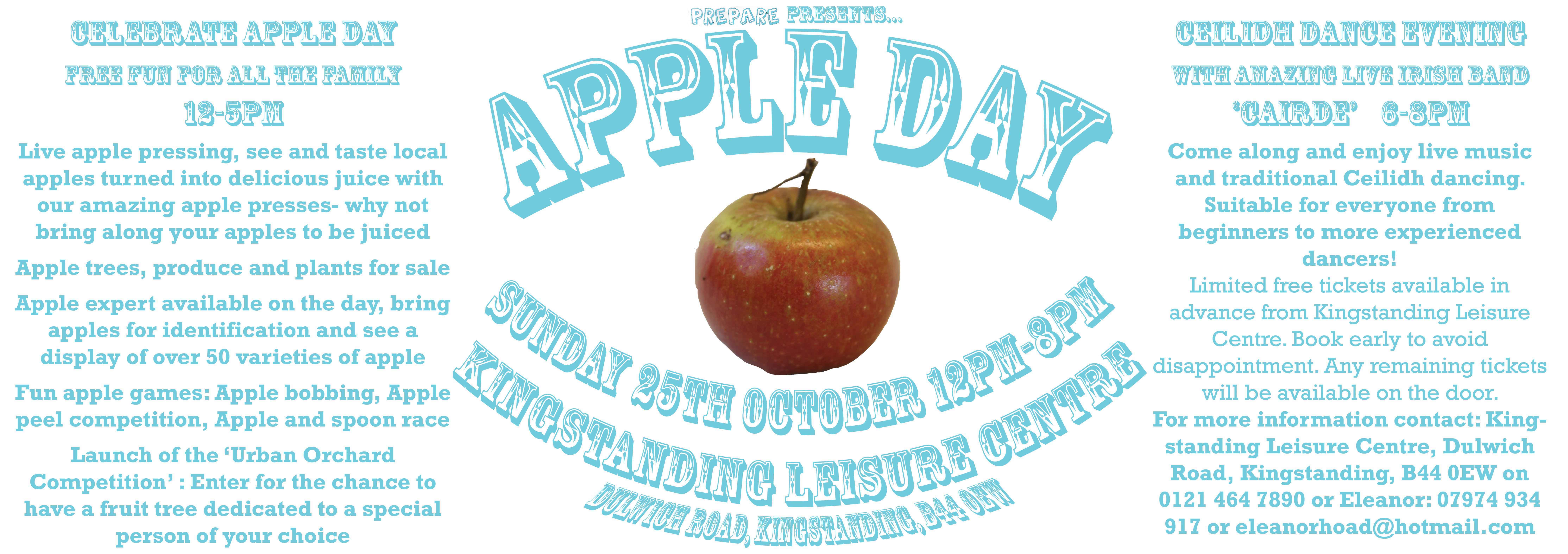
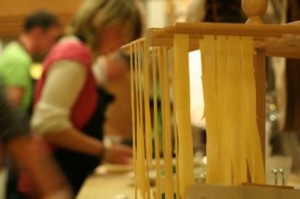 Well last week saw Loaf’s first week of doing business. We started on Thursday evening with a ‘Handmade Pasta’ workshop. Five people came along (six is our maximum class size), and by the end of the evening had successfully mastered kneading, rolling, and shaping fresh egg pasta, and made three classy sauces to accompany their handiwork. Alongside a nice Chianti, we enjoyed seasonal vegetable tortellini with a butter and blue cheese sauce, paperdelle puttanesca, and taglietelli carbonara. Oh and we made some orechiette with the scraps and a quick gnocchi demo. Phew, it was a lot of fun and the talented students picked up the techniques extremely quickly, without even using a pasta machine!
Well last week saw Loaf’s first week of doing business. We started on Thursday evening with a ‘Handmade Pasta’ workshop. Five people came along (six is our maximum class size), and by the end of the evening had successfully mastered kneading, rolling, and shaping fresh egg pasta, and made three classy sauces to accompany their handiwork. Alongside a nice Chianti, we enjoyed seasonal vegetable tortellini with a butter and blue cheese sauce, paperdelle puttanesca, and taglietelli carbonara. Oh and we made some orechiette with the scraps and a quick gnocchi demo. Phew, it was a lot of fun and the talented students picked up the techniques extremely quickly, without even using a pasta machine!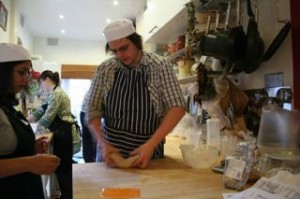
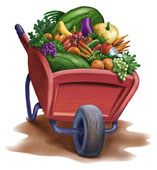


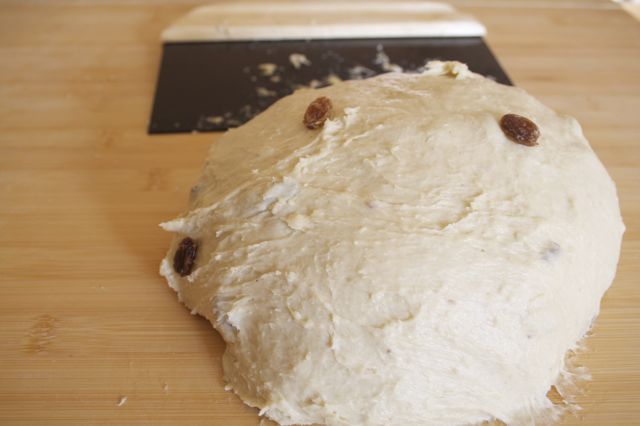

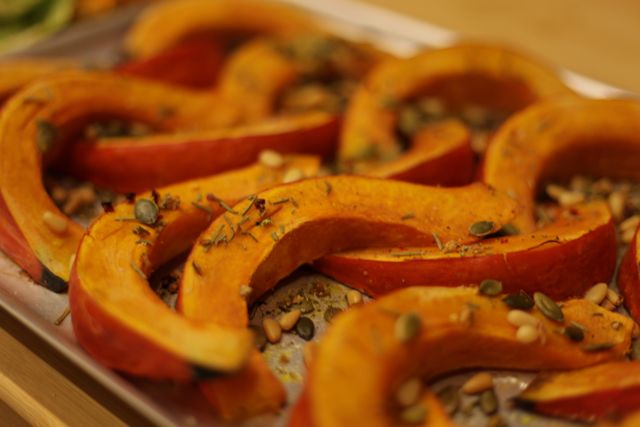





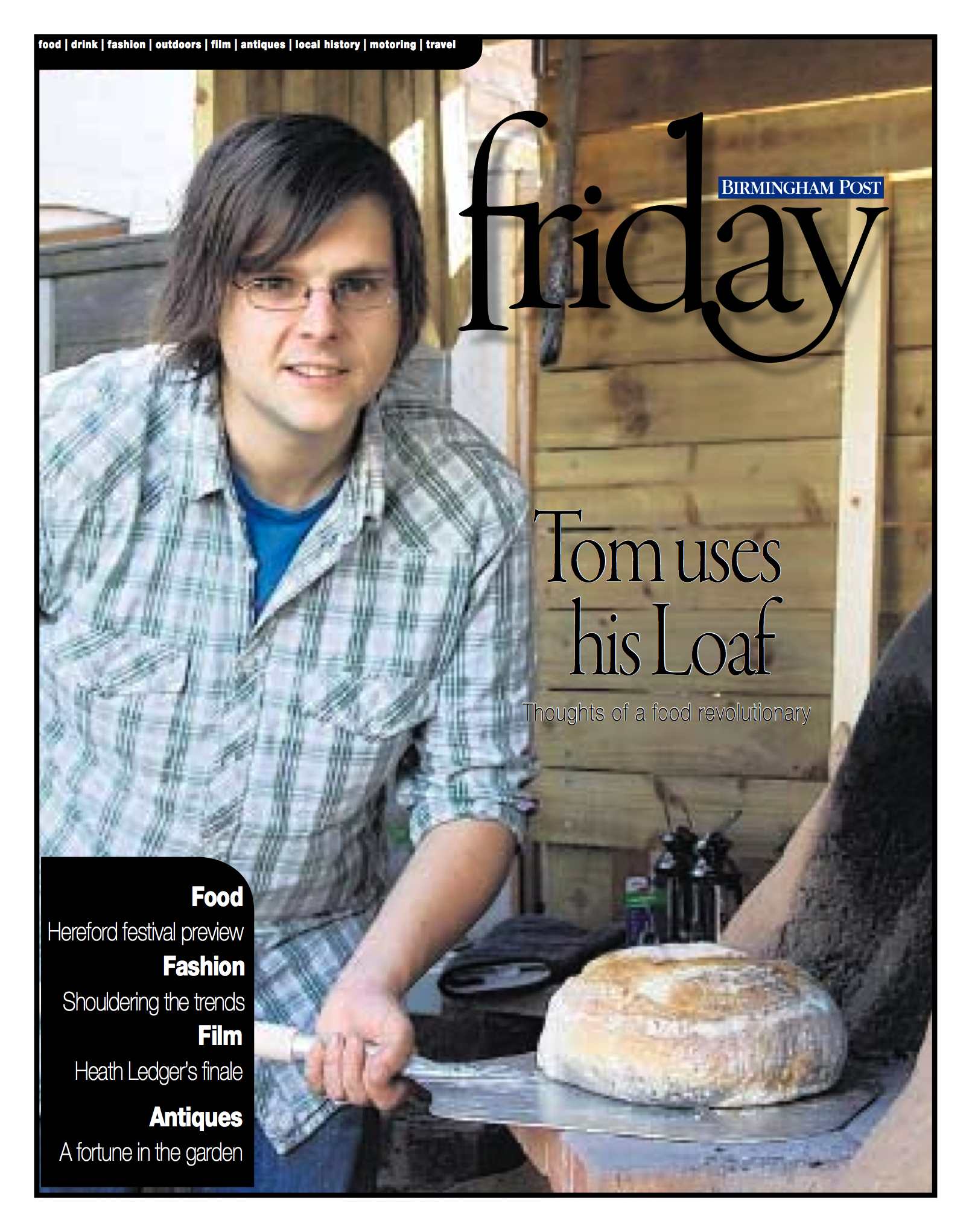

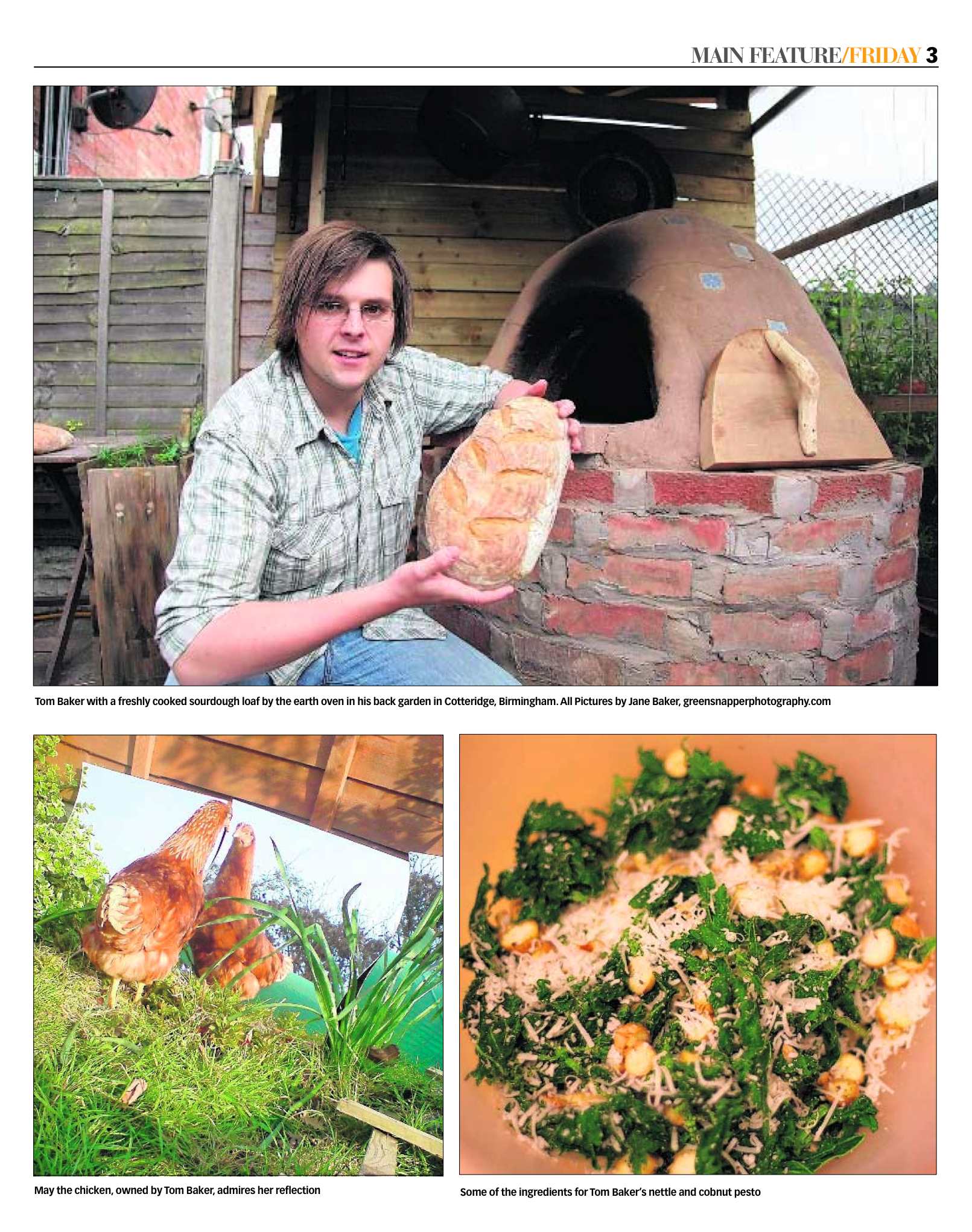




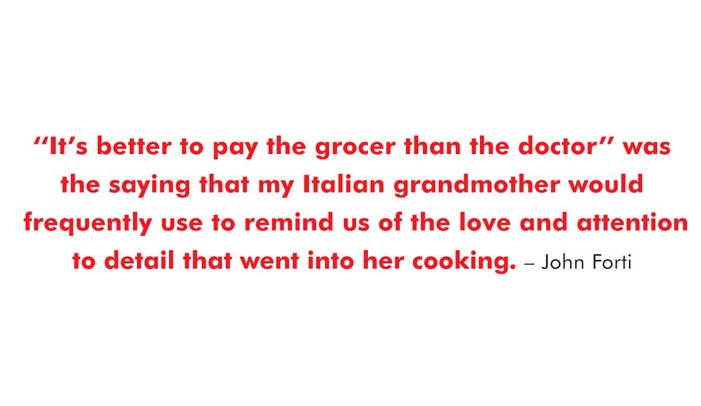

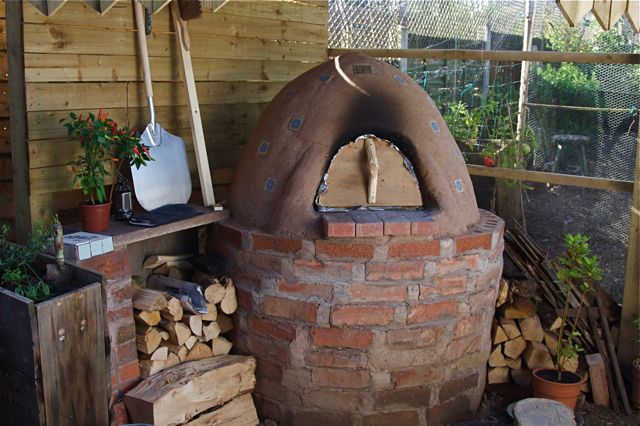



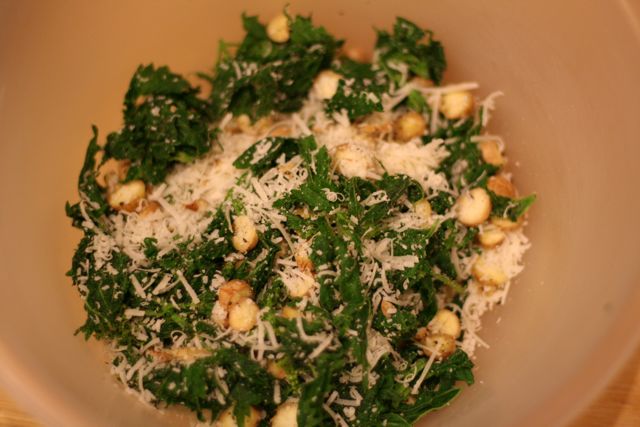
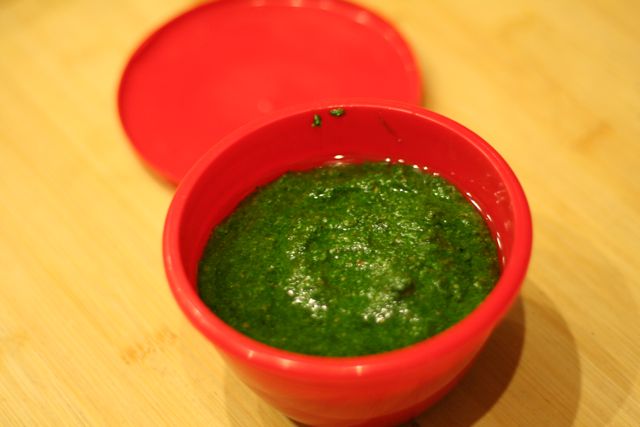
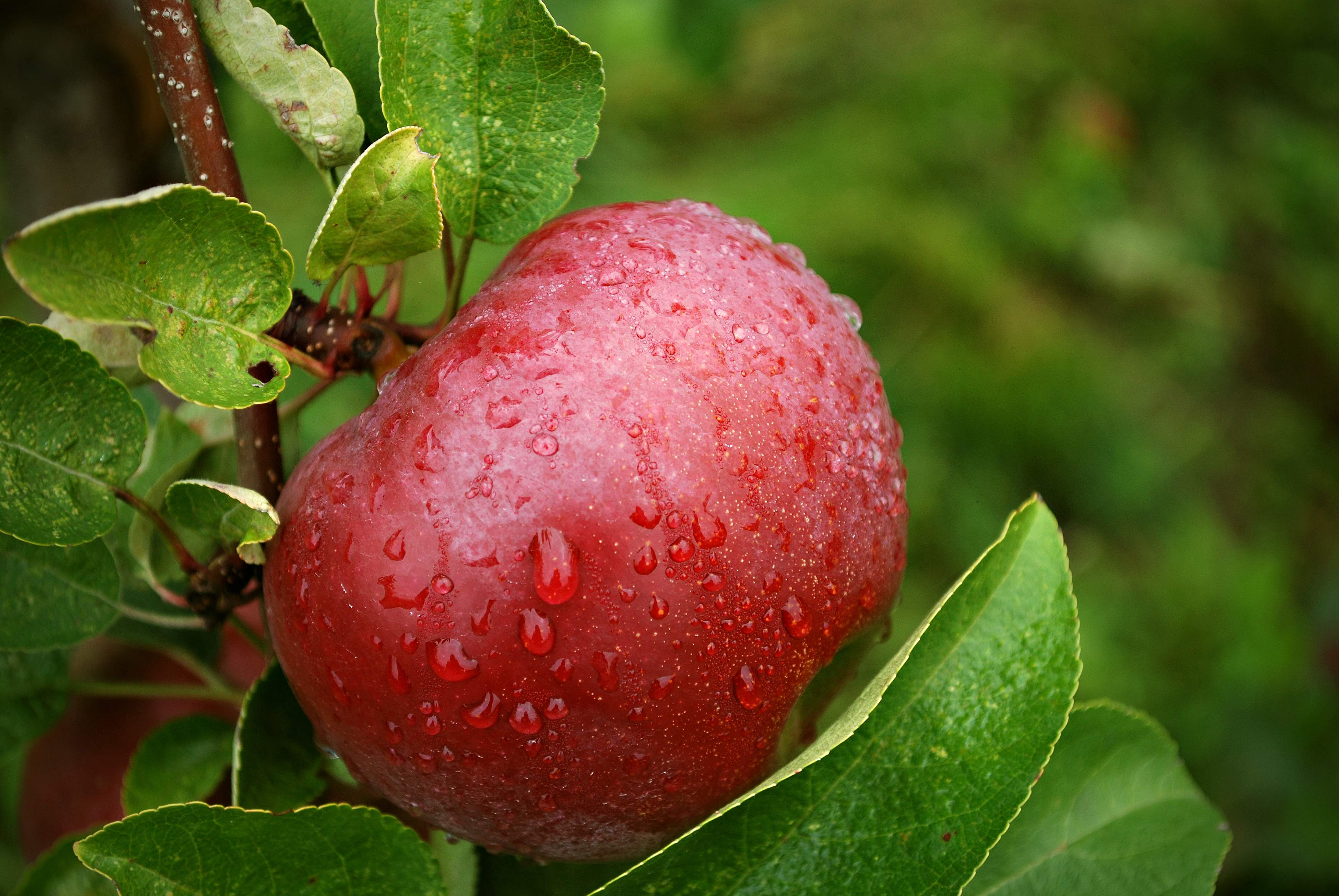 PREPARE is the brain child of Eleanor Hode, artist in residence for the ward of Erdington. Eleanor says the aim of the project “is to harvest, process and distribute unused fruit growing in peoples gardens and on public land and to get it eaten! Either as fresh fruit or processed into juice, jams and pickles that are given away to local people”
PREPARE is the brain child of Eleanor Hode, artist in residence for the ward of Erdington. Eleanor says the aim of the project “is to harvest, process and distribute unused fruit growing in peoples gardens and on public land and to get it eaten! Either as fresh fruit or processed into juice, jams and pickles that are given away to local people”